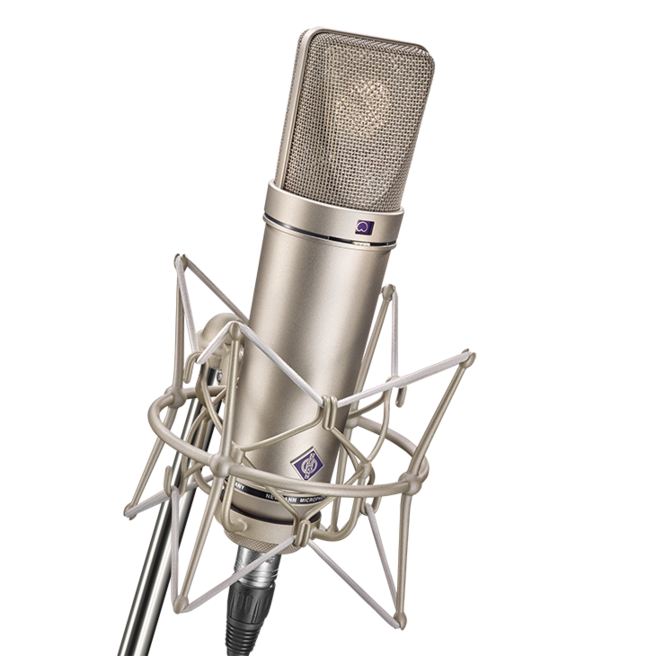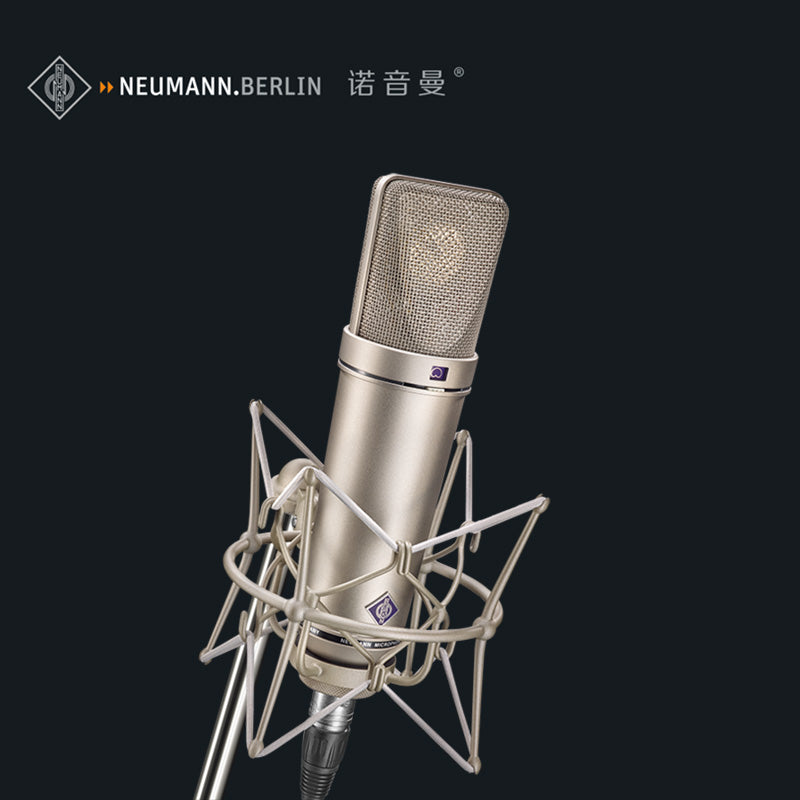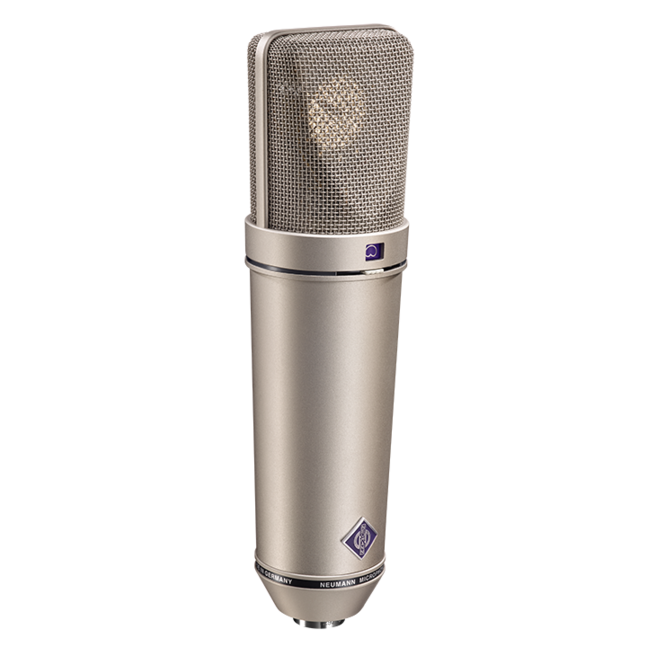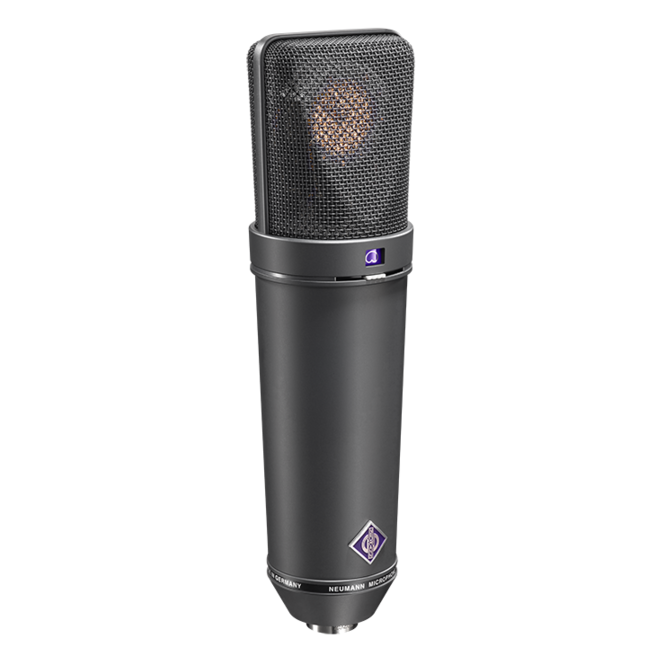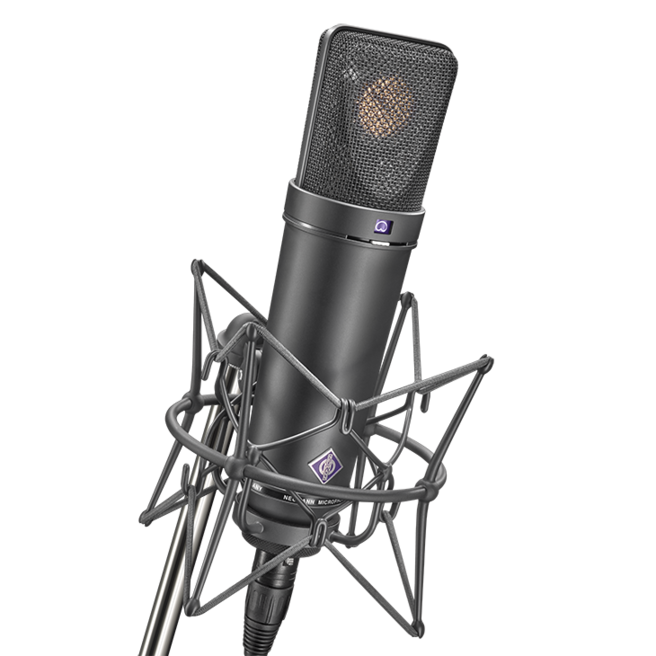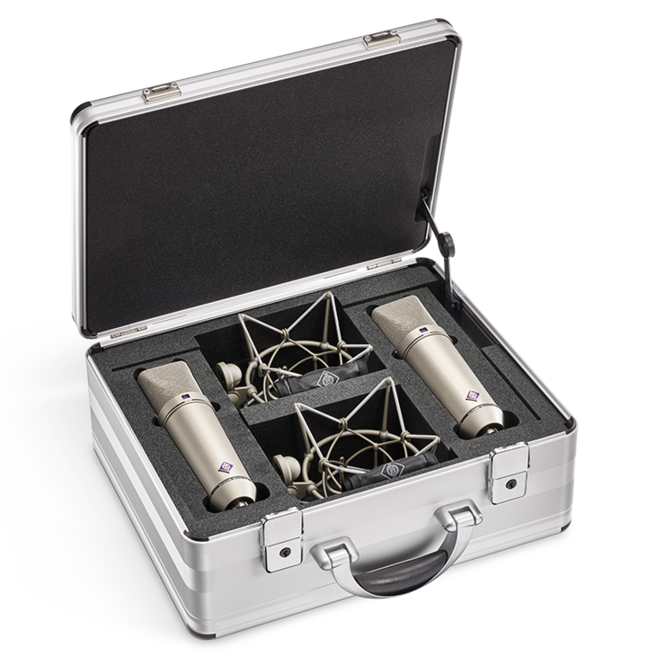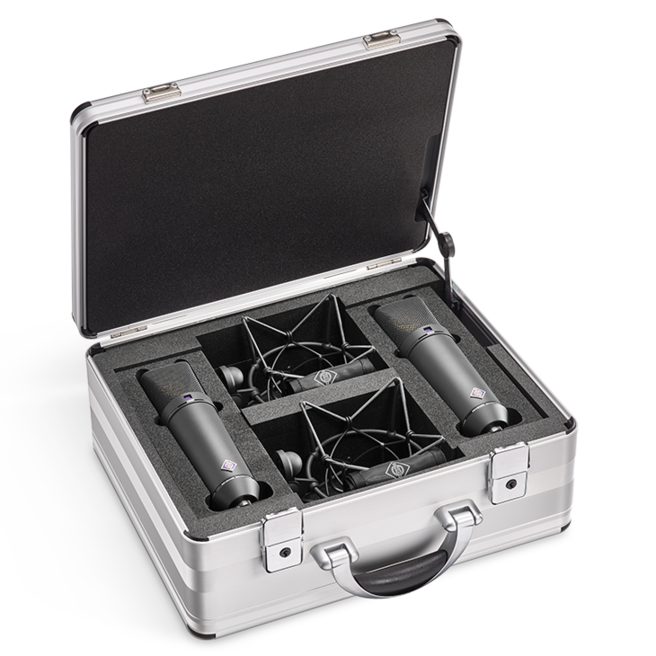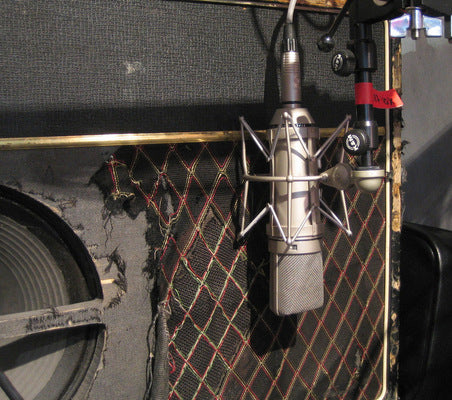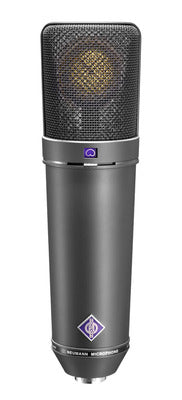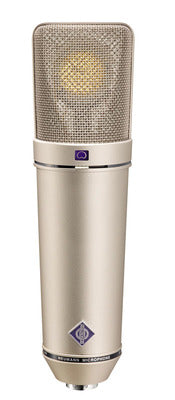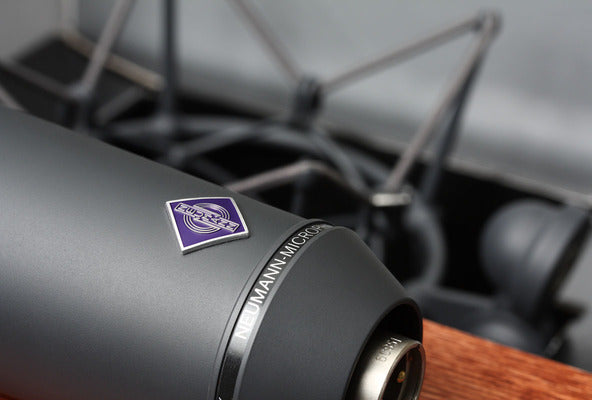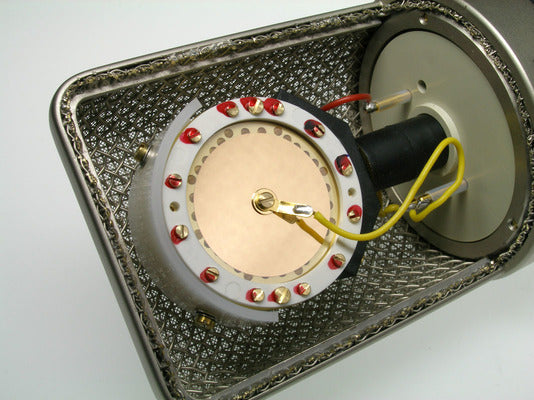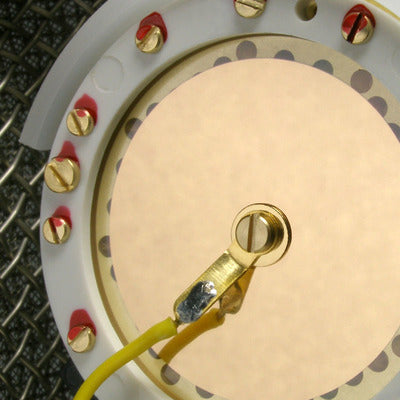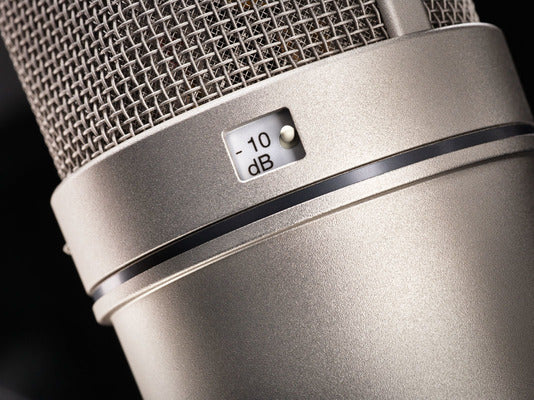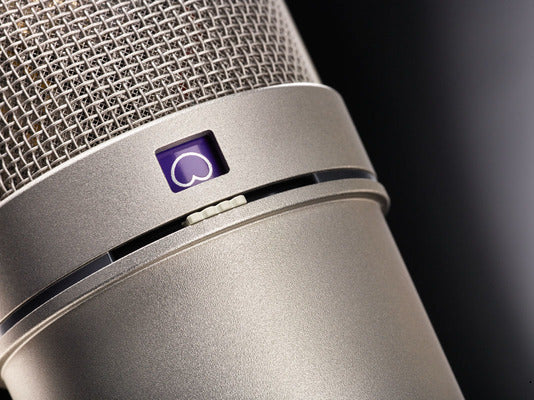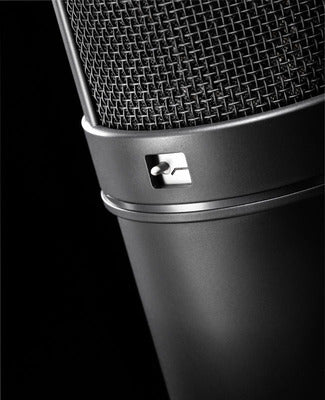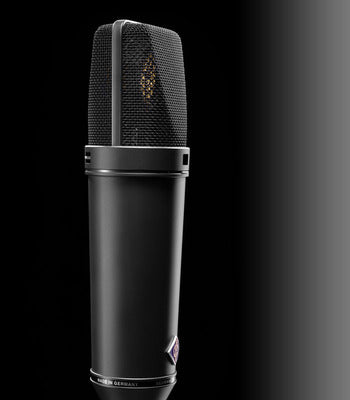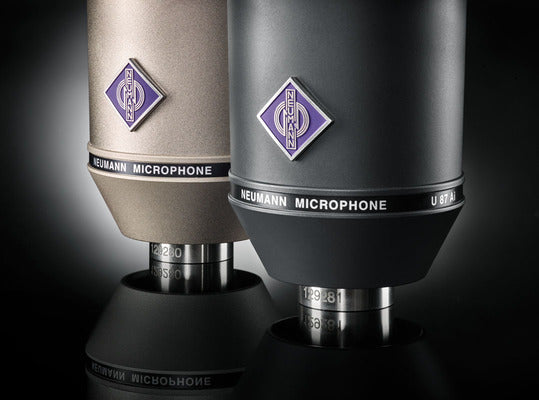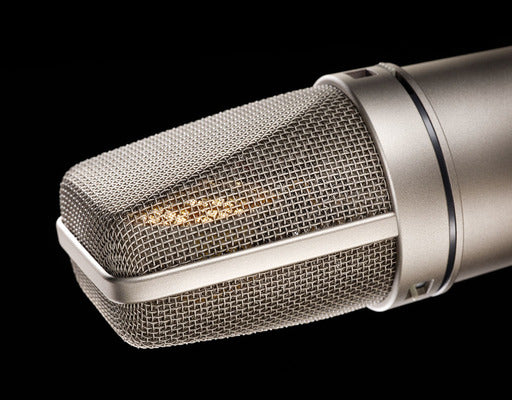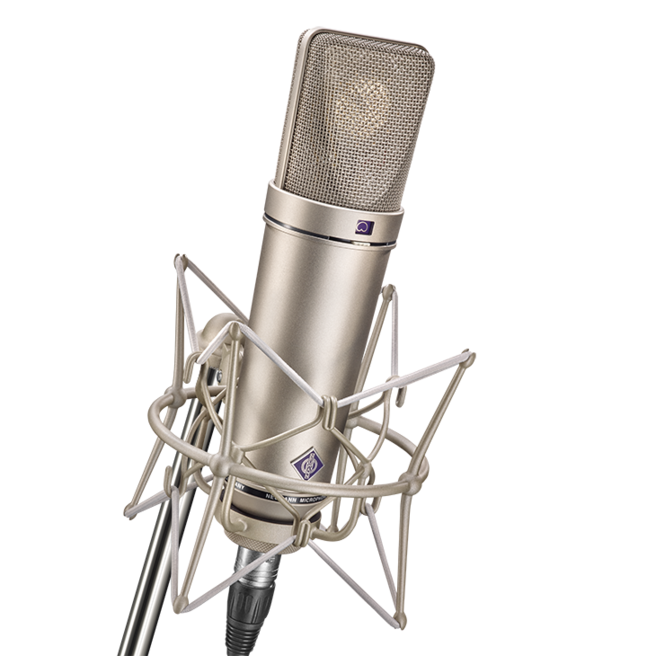
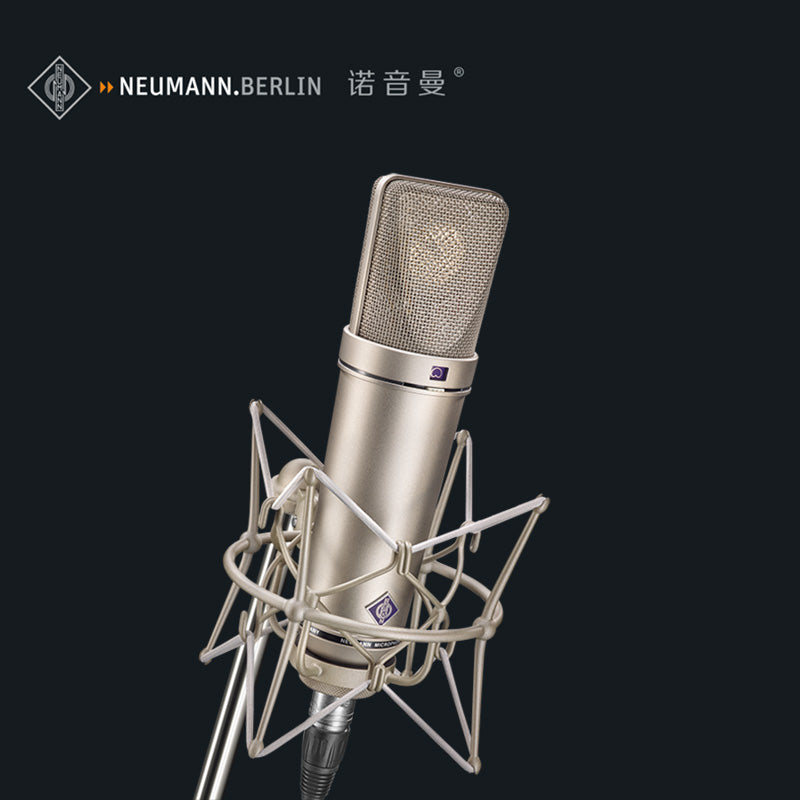
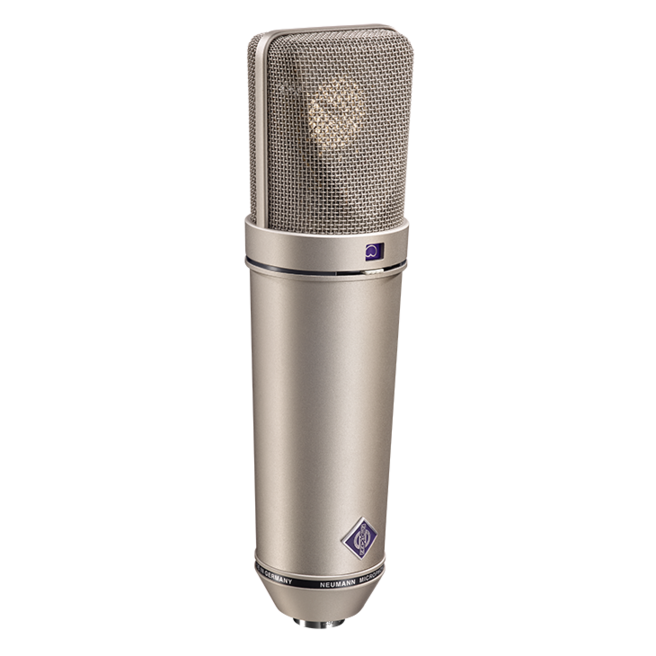
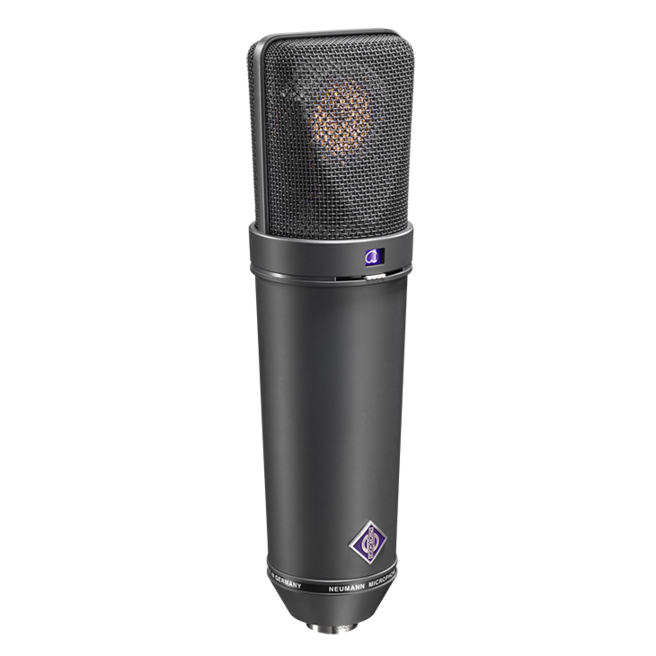
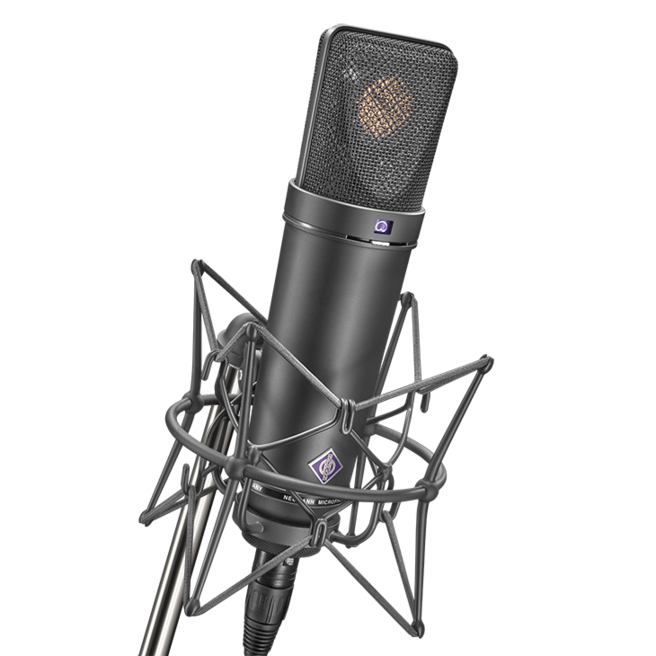
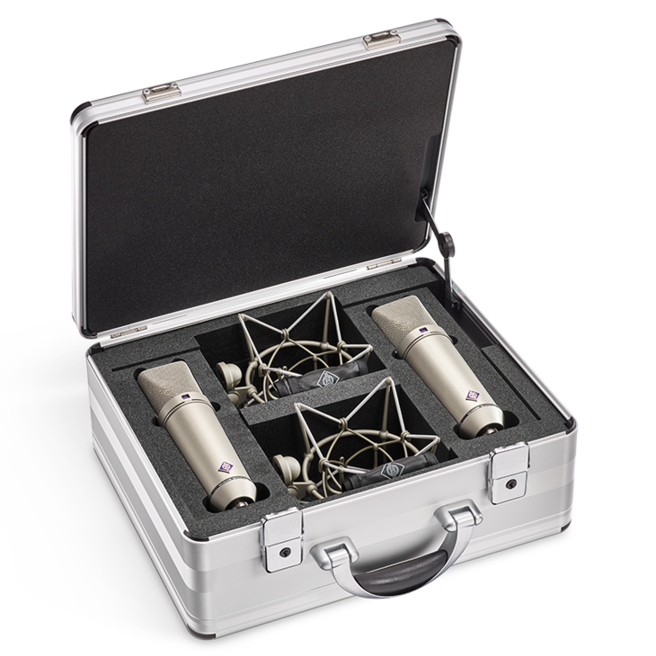
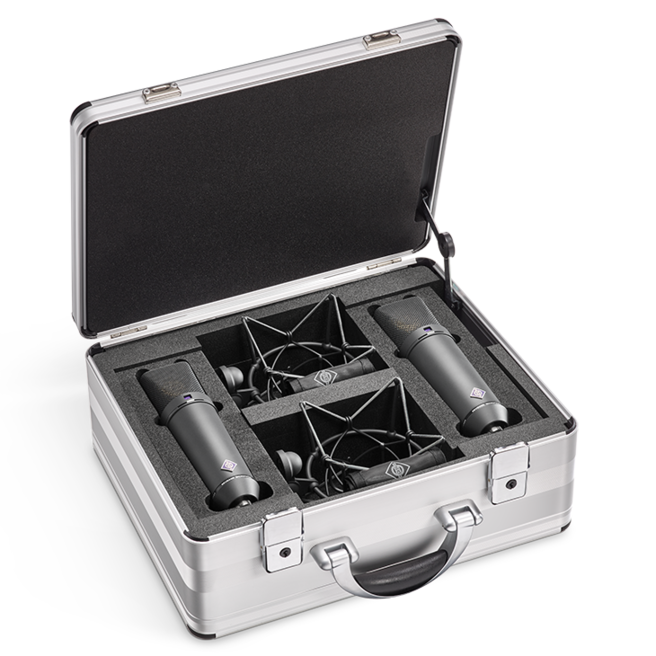
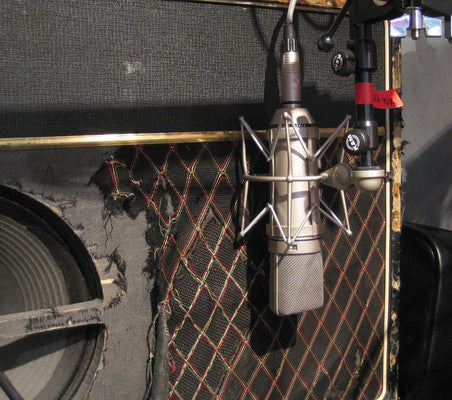
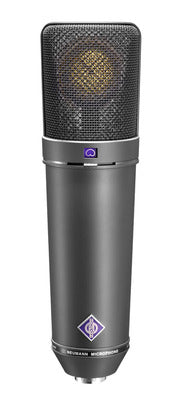
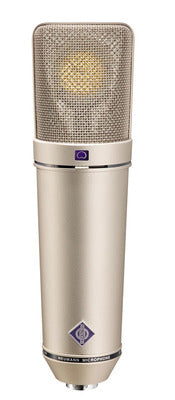
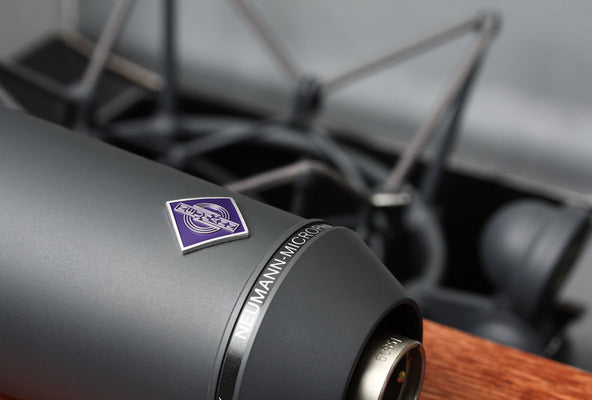
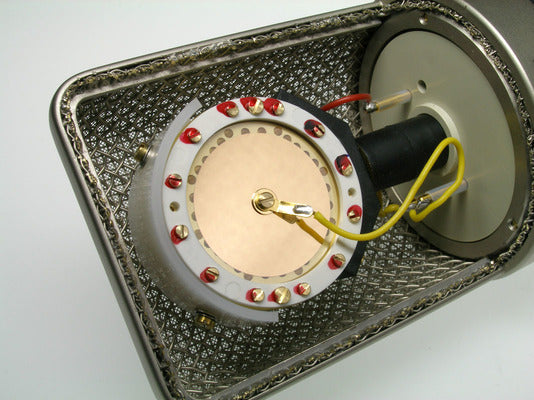
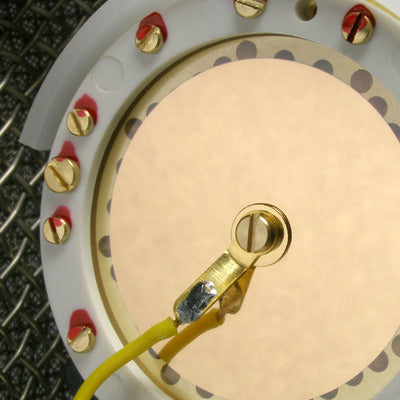
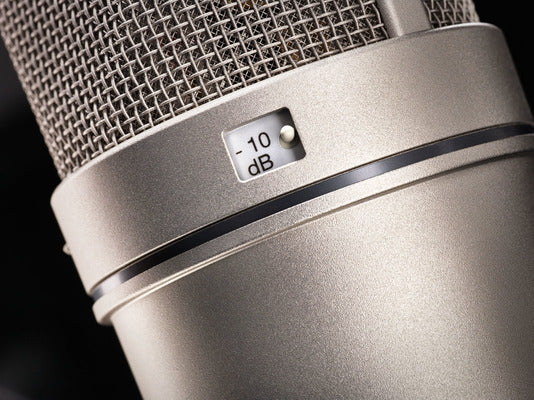
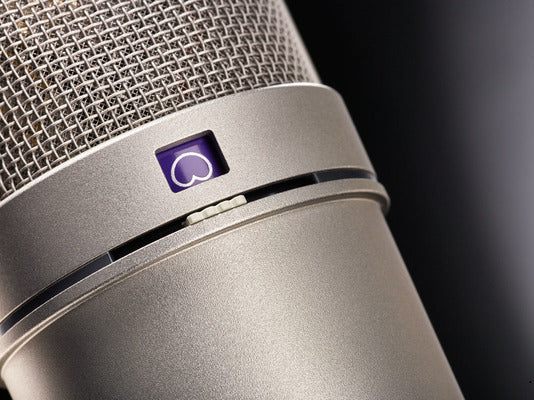
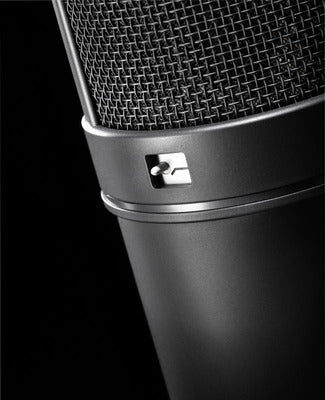
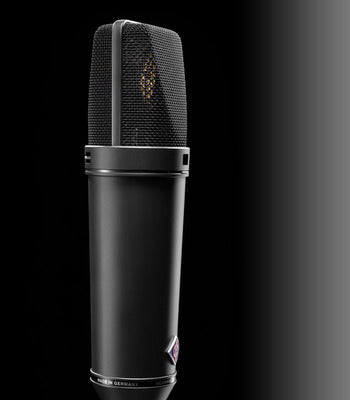
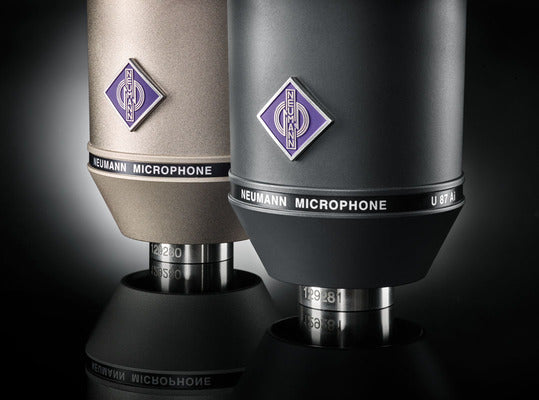
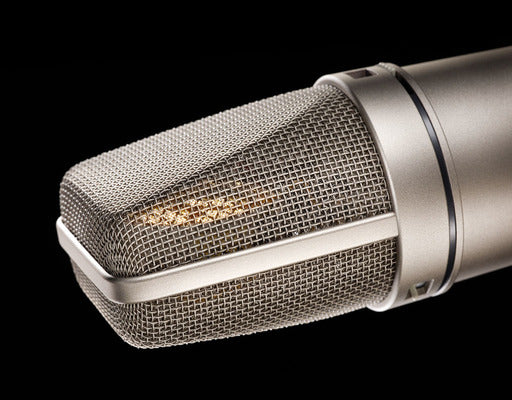
Collapsible content
Description
The Gold Standard
The Neumann U 87 Ai is probably the best-known and most frequently used studio microphone the world over. Its smooth and refined sound is as iconic as its elegant exterior design. The U 87 Ai is the standard microphone for speech and vocals. Three polar patterns plus pad and low cut options make it adaptable to a wide range of applications.
Omnipresent Yet Unique
The Neumann U 87 Ai is a true legend. Introduced in 1967, it has shaped the sound of countless hit records for the past 50 years. And when those hits were announced on the radio, many a DJ sat before a U 87 Ai. The legend continues: To this day, no professional recording studio is complete without a Neumann U 87 Ai.
The U 87 Ai is the epitome of a large diaphragm condenser microphone. Its tapered body and iconic headgrille design have become part of the collective consciousness: This is what a studio microphone looks like. The same is true of its sound: The U 87 Ai represents studio quality; it has become the gold standard by which other microphones are measured.
What sets the U 87 Ai apart is its unique combination of linearity and character. Although its on-axis frequency response is remarkably flat, it does exert certain charisma. It just sounds right! This makes the U 87 Ai both versatile and instantly recognizable.
Classic Neumann Engineering
Technically speaking, the U 87 Ai is a traditional design whose timeless formula has remained unchanged for decades. The U 87 Ai uses the same dual diaphragm condenser capsule design as its predecessor, the no less legendary U 67 of the early 1960s. Its head amplifier, too, is based on the same design principles as its tube driven predecessor, but the U 87 Ai realizes them by means of a unique FET circuit with a minimal signal path and a transformer balanced output, ensuring maximum signal integrity and high common mode rejection.
The result is a studio microphone of unmatched clarity. Its natural sound and unique midrange presence make the U 87 Ai the ultimate vocal microphone, praised by singers and engineers alike, as well the prime choice for speech applications, such as voice over, dubbing, and audio books. Due to its balanced response in each of its three directional patterns, the U 87 Ai is also a versatile microphone for anything from acoustic guitar to drums overheads. Due to its solid bass response and excellent midrange detail, it is often seen in front of bass and guitar cabinets. For classical recordings, the U 87 Ai is frequently used as a spot mic for soloists, e.g. cello. A stereo pair of U 87 Ais is the preferred choice of many engineers for recording piano in virtually any genre from pop and jazz to classical music.
- The world’s most famous studio microphone
- Classic sound, instantly recognizable yet versatile
- Balanced frequency response
- Three polar patterns: omni, cardioid, figure-8
- Switchable low cut and pad
- Very low self-noise
Data and Diagrams
| Acoustical operating principle | Pressure gradient transducer |
|---|---|
| Directional Pattern | Omnidirectional, cardioid, figure-8 |
| Frequency Range | 20 Hz ... 20 kHz |
| Sensitivity at 1 kHz into 1 kohm | 20/28/22 mV/Pa ± 1 dB (Omni/cardioid/8) |
| Rated Impedance | 200 ohms |
| Rated load impedance | 1 kohms |
| Equivalent noise level, CCIR¹⁾ | 26/23/25 dB (Omni/cardioid/8) |
| Equivalent noise level, A-weighted¹⁾ | 15/12/14 dB-A (Omni/cardioid/8) |
| Maximum SPL for THD 0.5%²⁾ | 117 dB (cardioid) |
| Maximum SPL for THD 0.5% with preattenuation²⁾ | 127 dB |
| Signal-to-noise ratio, CCIR (re. 94 dB SPL)¹⁾ | 68/71/69 dB (Omni/cardioid/8) |
| Signal-to-noise ratio, A-weighted (re. 94 dB SPL)¹⁾ | 79/82/80 dB (Omni/cardioid/8) |
| Maximum output voltage | -6 dBu |
| Supply voltage (P48, IEC 61938) | 48 V ± 4 V |
| Current consumption (P48, IEC 61938) | 0.8 mA |
| Matching connector | XLR 3 F |
| Weight | 500 g |
| Diameter | 56 mm |
| Length | 200 mm |
1) according to IEC 60268-1; CCIR-weighting acccording to CCIR 468-3, quasi peak; A-weighting according to IEC 61672-1, RMS
3) measured as equivalent el. input signal
Diagrams
Figure 8 U 87 Ai


Cardioid U 87 Ai


Omni U 87 Ai



